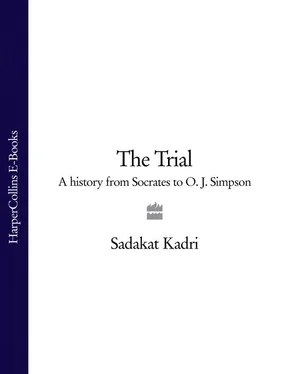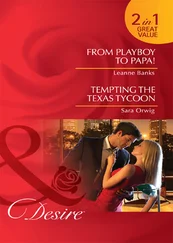But events then took an unexpected turn. The jurors asked for time to consider their decision – a request that was itself becoming unusual by the late seventeenth century – and it was an hour and a half before they returned. Eight were ready to convict, but four of them, led by a wealthy Puritan sugar merchant named Edward Bushel, were not prepared to do so. Starling declared Bushel ‘impudent’, and the jurors were sent away to think again. If the rebuke was supposed to fortify the majority, the judges were in for a shock. By the time the jurors returned, Bushel had been elected their foreman, and he now declared that Penn was ‘guilty of speaking in Grace-Church Street’. Since speech alone had never been a crime under English law, non scripta or otherwise, the finding amounted to a verdict of not guilty. ‘Is that all?’ barked Howel. ‘You had as good say nothing.’ Sent off again, the jurors asked for a pen, ink, and paper and returned with a verdict in writing. Penn was guilty only of speaking, they repeated, and Mead was not guilty, full stop. Howel coldly informed them that they would not be going home until they had reversed both decisions. The court would meanwhile adjourn for the night. And after reminding the bailiff of his traditional duty to withhold food, drink, and fire from the jurors, he added the novel instruction that they be denied a chamber pot.
The court reassembled at seven the next morning. Hungry, thirsty, and smelly the twelve men in the box may have been, but they were even more resolute. Bushel, asked for a verdict, repeated that Penn was guilty of speaking in Gracechurch Street. ‘To an unlawful assembly?’ inquired Starling, menacingly. ‘No, my Lord,’ replied Bushel, ‘we give no other verdict than what we gave last night; we have no other verdict to give.’ Starling, livid, declared that he would cut Bushel’s throat if he ever got the chance. The jurors were sent away again.
They eventually returned to reconfirm that they had nothing to add, and the judges finally snapped. An apoplectic Starling abused them for their choice of foreman, and threatened to slit Bushel’s nose. When Penn protested, the Lord Mayor told the jailer to gag him and spluttered that he should also be chained to a stake. Recorder Howel was no happier. ‘Till now’, he bellowed, ‘I never understood the reason of the…Spaniards, in suffering the inquisition among them: and certainly it will never be well with us, till something like unto the Spanish Inquisition be in England.’ The twelve men, he declared, would either convict or starve. Another night in Newgate’s fetid dungeons followed. But the jurors were no longer teetering on the brink. They had hit the bottom and bounced. On the following morning, they formally returned not guilty verdicts against both defendants.
Thomas Howel imposed swingeing fines on everyone, with indefinite jail terms for those who would not pay – and Bushel, along with three of his colleagues, chose jail. Their resilience was remarkable. Typhoid and dysentery were so endemic in prisons of the time that around one in ten inmates died awaiting trial, and no judge had ever before entertained a complaint against another’s decision to punish his jurors. But after they had spent ten weeks in Newgate’s excremental gloom, Lord Chief Justice Vaughan agreed to hear their request to be released – and he then freed them by way of the most significant legal ruling in the history of the jury trial. Two people, he insisted, could honestly disagree even when bound by oath. After almost half a millennium, the idea that a juror swore to what he knew rather than to what he believed was finally laid to rest. ‘The Verdict of a Jury, and Evidence of a Witness are very different things,’ explained Vaughan. ‘A witness swears but to what he hath heard or seen…but a jury-man swears to what he can infer and conclude from the testimony of such witnesses by the act and force of his understanding…’
Vaughan’s assertion of a power to clamp down on oppressive judges, made in a ruling known to lawyers ever since as Bushel’s Case, was soon being complemented by political changes on a broader front. Less than two decades after he handed down his judgment, the ‘Glorious Revolution’ of 1689 reasserted parliamentary control of the monarchy, finally putting paid to its ancient claims of absolute prerogatives. In the new climate, the judicial advantages previously guaranteed to the executive were steadily eroded. Accused traitors, and then felons in general, were given the right to call witnesses in the early 1700s and judges increasingly permitted prisoners to instruct counsel over the next few decades.
The consequences for criminal justice would be dramatic. Trials had for several centuries been free-for-alls, at which lawyers appeared only to represent the state and only in the most serious cases, while judges, jurors and defendants argued amongst themselves in the large majority. But the arrival of defence counsel, which was complemented by the professionalization of prosecution, turned trials into structured disputes over the meaning of legal history – or ‘precedent’, as the lawyers called it. As they cited from their tomes and cross-referred to each other’s cases, countless rules and conclusions were soon being firmed up. By the middle of the eighteenth century, the customary suspicion of certain types of evidence such as hearsay was being formalized into rules of admissibility and exclusion. Towards its end, an even more far-reaching change took place as the presumption of innocence, previously little more than an aspiration, was promoted to axiom.
The jury was simultaneously propelled into the moral stratosphere. The myth of justice that had been gripping England since the time of Walter Raleigh had found its institutional hero: a body of men so brave it would go to jail for the underdog, and so selfless it would forgo its collective chamber pot for love of liberty. There would always be some controversialists prepared to point out that jurors slept on the job and hanged children as well, but the most influential legal writer of the eighteenth century, William Blackstone, was not one of them. In his mammoth compilation of the criminal law, still annually updated and cited in England’s courts, he assured readers during the 1760s that judgment by twelve men ‘indifferently chosen, and superior to all suspicion’ was the ‘sacred bulwark’ of the nation’s liberties.
The system was also laying down deep roots far beyond Britain. King James had guaranteed jury trials in 1606 to the first emigrants to Virginia, and although settlers’ leaders would try nevertheless to monopolize power with magistrates’ courts, juries soon became commonplace across colonial America. William Penn himself crossed the Atlantic twelve years after his 1670 trial and the founding laws of Pennsylvania, the province that he established in honour of his father, promised that twelve men would have ‘the final judgment’ in every case. By 1735, when a New York jury acquitted a printer called John Peter Zenger in the teeth of a judge’s instructions that the truth of his words could be no defence to a charge of sedition, American jurors were flexing their muscles at least as much as their English counterparts. They were also idealized no less than in England. The colonists read Blackstone and devoured the anti-executive arguments of Edward Coke, harbouring hopes and grievances that were virtually defined by England’s political struggles, and the right to an open jury trial was close to the top of their wish list. It was the only guarantee contained in all twelve state constitutions that existed in 1776, while the federal constitution that was framed at Philadelphia eleven years later envisaged that the US government would suspend access to courts only in the event of ‘rebellion or invasion’.
Читать дальше




![Theresa Cheung - The Dream Dictionary from A to Z [Revised edition] - The Ultimate A–Z to Interpret the Secrets of Your Dreams](/books/692092/theresa-cheung-the-dream-dictionary-from-a-to-z-r-thumb.webp)







